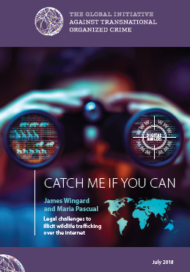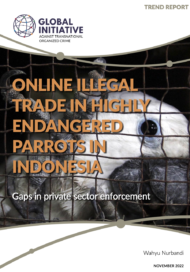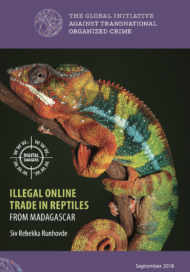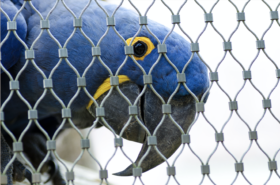Posted on 19 Jul 2018
Although illicit internet trade falls into the larger universe of cybercrime, it is better described as a cyber-enabled crime – in other words, a traditional crime that uses new technologies with the traditional part being the illegal capture of wildlife and the associated physical forms of trade. In addition to the many legal and enforcement
challenges associated with conventional wildlife crimes, internet-based illegal wildlife trade (IWT) poses another set of problems for officials, forcing them to operate in a trans-jurisdictional, virtual space that they, and the law, are largely unprepared to manage.
On the practical side, they face substantial difficulties merely distinguishing legal from illegal trade, including:
- knowing which species are involved and which countries’ laws apply to the activity in question (e.g. advertising, sale and purchase, arrangement of logistics);
- determining trade quantities and making decisions on whether to invest resources in the pursuit of crimes; and
- knowing which specific legal basis may apply to the species being traded. In terms of their legal authorities and practices, officials also confront further problems, in that they may have no specific power to carry out covert investigations; no, or limited, access to cybercrime units; and no, or limited, experience with cybercrime laws and digital forensics to conduct necessary investigations.
Concerning the legal frameworks directed at illicit wildlife trade, they face:
- criminal and related laws that do not adequately address all parts of the digital trade chain by expressly criminalizing the advertising of illicit wildlife trade or related offences;
- differing investigative authorities between jurisdictions that compromise transnational enforcement efforts; and
- inconsistent regulation of and limitations to subject matter and personal jurisdiction that create ‘digital safe havens’ and prevent prosecutions.
Taken as a whole, the overall ability of enforcement authorities to adequately identify, investigate and prosecute the advertising of illicit wildlife on the internet is severely compromised. Key efforts to improve this situation have been included in the conclusion and recommendations to this brief.




